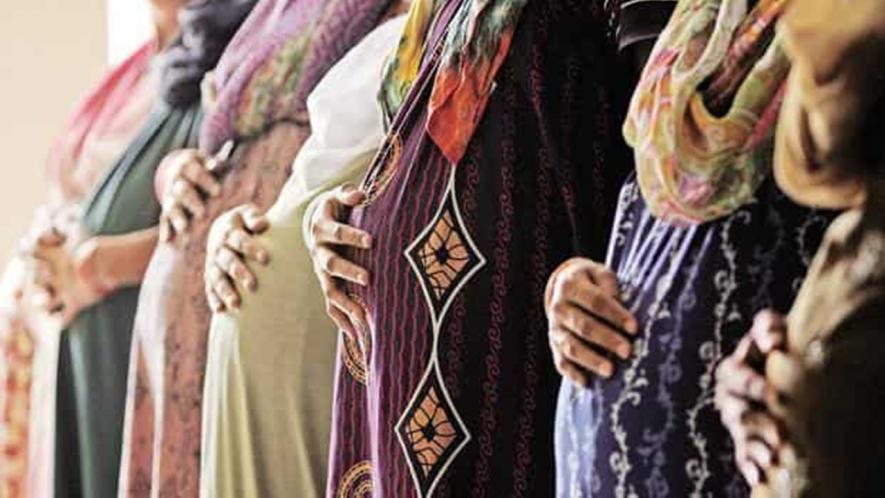Can Women be Denied Maternity Benefits During COVID-19?

The novel coronavirus or has sent the economy and the jobs market into a tizzy -- the pink slip entered our collective imagination. Many are hanging on to their jobs with severe pay cuts. Given the bleak scenario, can pregnant women hope for maternity benefits that the law entitles them to? Are employers, smarting under losses, obliged to provide maternity benefits? A recent Delhi High Court judgement says they are.
With no definitive cure or vaccine in sight, women employees are an anxious lot. Anxiety in pregnant women is even higher, leaving them with many unanswered questions regarding their health and the well-being of their new-born.
While it has still not been scientifically confirmed whether pregnant women are more susceptible to COVID-19, it is an established fact that in some women, pregnancy alters the body’s ability to fight certain viral infections.
In a recent judgement (Manisha Priyadarshini vs Aurobindo College-Evening & Ors) pronounced by the Delhi High Court on May 1, the court, while dealing with the issue of a non-renewal of contract of the Appellant -- who was on maternity leave and whose contract expired during COVID-19 -- quashed the termination order by the college, dated May 29, 2019. It also directed the college to appoint the petitioner forthwith to the post of Assistant Professor in the English Department on an ad-hoc basis till such time that the vacant posts are filled up through regular appointment.
In its concluding remarks, the court said that taking away the Appellant’s job was “...tantamount to depriving her of the protection assured under Article 21 of the Constitution of India of her right to employment and protection of her reproductive rights as a woman...”. Even given a situation of contractual employment, where rules did not allow for maternity leave, the court clearly upheld the validity of maternity leave.
It further emphasised that not providing maternity leave was, “...tantamount to penalising a woman for electing to become a mother while still employed and thus pushing her into a choiceless situation as motherhood would be equated with loss of employment.” Clearly, the pandemic too is no ground for depriving women employees of maternity benefits.
Pregnant women, especially single to-be-mothers, are the worst affected if their remunerations are held up for a prolonged period of time. It is now a globally accepted norm that any working woman is entitled to her wages during her maternity leave. Maternity is a natural and divine act; therefore denial of wages or leave is seen as a grave denial of human rights.
In India, benefits relating to maternity are regulated by the Maternity Benefits Act, 1961. In order to protect the rights of women employees during pregnancy and after childbirth, Indian law makes it mandatory for most large establishments to offer maternity benefits to women employees.
The Act provides that a woman will be paid maternity benefit at the rate of her average daily wage for three months preceding her maternity leave. However, the woman needs to have worked for the employer for at least 160 days in the 12 months preceding the date of her expected delivery. In 2017, the law was amended, extending the benefit period to 26 weeks. Of this, up to eight weeks can be claimed before delivery.
Despite the law, pregnant women in India have often been denied maternity benefits, particularly during times of crisis such as the on-going pandemic. This pandemic has led to many employees being summarily sacked. Concerns regarding maternity benefits may eventually arise. However, there is a precedent.
The writer is a final year law student at Vivekananda Institute of Professional Studies (VIPS), Delhi.
Get the latest reports & analysis with people's perspective on Protests, movements & deep analytical videos, discussions of the current affairs in your Telegram app. Subscribe to NewsClick's Telegram channel & get Real-Time updates on stories, as they get published on our website.
























